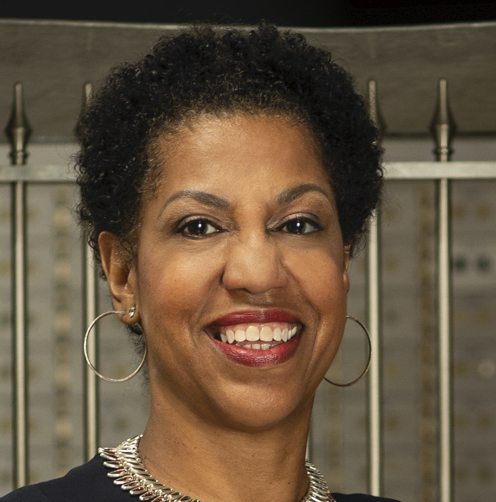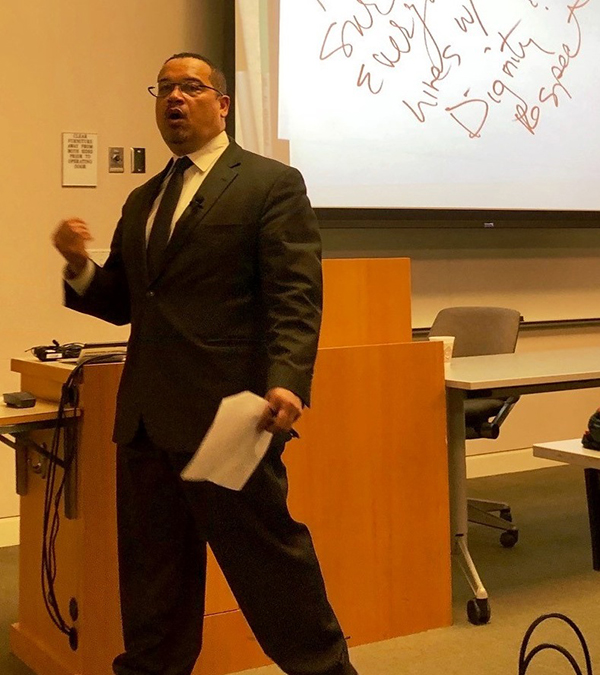Recent news events show there is still work to be done

By Teri Williams
Contributing Columnist
The key to overcoming racism is to confront the issues and not be discouraged or dismayed. Social justice impacts our wallet. We must not allow racism to impact our confidence in our ability to move forward. Our work is not done.
Whether we can believe it or not, it has been 10 years since #BlackLivesMatter was first used on social media platforms, exclaimed by millions of peaceful protestors and used as a rallying cry for social justice.
Since July 2013, Black Lives Matter, the simple, yet powerful message, has become a global movement that brought light to injustice around the world.
To be clear, the Black Lives Matter movement has been highly effective over the past decade. According to the Brookings Institute “Black Lives Matter at 10 Years; 8 Ways the Movement Has Been Effective,” the movement has been highly effective in shedding light on police brutality, shifting public opinion on the impact race has on policing, increased the use of implicit bias training, body worn cameras and bans on no knock warrants, galvanized a new crop of elected officials and community leaders and improved data collection efforts, among other accomplishments.
Yet data shows that the number of Black people killed by police has increased since the death of George Floyd. According to data collected by the Washington Post, police shot and killed at least 1,096 people nationwide in 2022 and 1,055 in 2021, the most since the newspaper began tracking fatal shootings by officers in 2015.
That is more than the 1,021 shootings in 2020 and the 999 in 2019. Black people, who account for about 14% of the U.S. population, accounted for 27% of those fatally shot and killed by police, which means Black people are twice as likely as white people to be shot and killed by police officers.
Improvements in policing can impact our lives and our wallets. For instance, many housing programs, condo associations and landlords screen for criminal records. There is a growing movement across the country to undo the harsh treatment of people with criminal records, with tens of millions of people in the U.S. denied access to jobs, housing, benefits, education and other basic rights due to old convictions.
Our work is not done.
The recent U.S. Supreme Court decision to “outlaw” the use of race in admission decisions by universities is a major setback for the Black community.
Using the results of California’s Proposition 209, which banned affirmative action for California universities, as an example of what is likely to happen, there will be a decrease in Black enrollment in selective universities, a decrease in Black enrollment in science, technology, engineering and math fields, and a decrease in Black wages across the country due to the Supreme Court’s decision.
And the cost to the Black (and Latino) community outweighs any marginal benefit to the white and Asian community. The ban on affirmative action impacts our lives and our wallets.
A 2020 study, “Affirmative Action, Mismatch, and Economic Mobility After California’s Proposition 209” by the Center for the Study of Higher Education at UC Berkeley, indicated that ending affirmative action in California caused 10,000 annual underrepresented minority freshman applicants to cascade into lower-quality public and private universities. Those applicants’ undergraduate and graduate degree attainment declined overall and in STEM fields specifically.
Proposition 209 also deterred thousands of qualified underrepresented minority students from applying to any UC campus. Complementary analyses indicates that affirmative action’s net wage benefits for underrepresented minority applicants exceed its (potentially small) net costs for on-the-margin white and Asian applicants.
In other words, banning affirmative action impacts our wallets and exacerbates socioeconomic inequities. Our work is not done.
As these examples show, social justice impacts our wallet because it limits our access to opportunities (quality education, jobs, housing, etc.) and increases the probability of negative outcomes (incarceration, even death, etc.). The key is to not be discouraged or dismayed. We must not allow racism to impact our confidence in our ability to overcome obstacles and move forward
Public policy is needed to address discrimination that negatively impacts our wallets. We need elected officials who will make the public policy changes needed to address racial disparities. Let’s continue to uplift and empower our community on this uphill battle for justice and equality
Yes, #BlackLivesMatter. And today, more than ever, your vote matters.
Teri Williams is the president and chief operating officer of One United Bank, the largest Black-owned bank in the United States.
LIFTOUT
Social justice impacts our wallet because it limits our access to opportunities … and increases the probability of negative outcomes.




